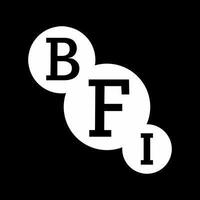BFI collaboration: The Public's Health

The Methods, Ethics, and History of Public Health in Moving Images
Social media – primarily Tik Tok, Facebook, X/Twitter, and Instagram – are now considered responsible for the majority of public health messaging, whether Covid-19 information and misinformation, or recognizing the symptoms of cancer or ADHD. Yet these modern forms of health communication draw on historical practices found in film and television, in which government information, medical expertise, and lay opinions have long competed with one another.
This interdisciplinary project examines the ways in which the ‘public’ has been defined, represented, and shaped by public health communications in moving images (television, film, and video), drawing on the extensive moving image archive held by the British Film Institute (BFI). The BFI National Archive is one of the largest moving image archives in the world (60,000 fiction films; 120,000 non-fiction films; 750,000 television titles). These holdings include substantial collections of screen works under the category of ‘public health messaging’. The massive film collection of the Central Office of Information (COI), the UK state’s principal communications agency between 1946 and 2011, is held by the BFI, and includes numerous films conveying health information and advice to the general public, specific demographics, as well as internally within the health service. Many of these were produced by commission from the Ministry/ Department of Health, and public agencies such as Health Education England and the National Blood Service. Beyond the COI collection, the BFI holds examples of health information delivered in the pre-NHS era, and health topics covered within television programming and film and video produced by non-official sources.
This project investigates which portion of the public are envisioned when health organizations craft ‘public’ health messaging, and how this is shaped by authorship, medical context, and media technology. Drawing on a unique partnership between the BFI and the Medical Humanities research hub at the University of Oxford, this interdisciplinary scoping project will examine the methods, ethics, and history of public health messaging. Rather than taking the ‘public’ as assumed, it investigates what portions of the public are conceptualized and defined in public health messaging, as well as how it has been shaped by shifting political, medical, and technological contexts. It will analyse who and what is included in the ‘public’, who is excluded from such communications, and how changes in production, authorship, and technology shape public health messaging.
Key research questions include:
- How have key generators and producers of public health communications adopted and adapted to changing moving image technology?
- How do the methods of public health messaging shape the nature of medical and political authority and expertise?
- Who is ‘the public’ to which public health communication has typically been addressed, and to what extent does it coincide with the public actually affected by public health policy?
- What type of evidence (e.g. statistical, anecdotal, patient narrative) is used to present and shape public health messaging, and how has this shifted according to audience, historical context, ethical concerns, and technological format?
- How has British identity shifted according to different health crises, medical ethics, or communication technology?
- How does public health messaging reflect the process of British decolonisation, the rise of modern concepts of British multiculturalism, and Britain’s changing role in global health initiatives?
- How should academic research shape archival and curatorial practices, and vice versa?
This project is generously supported by a University of Oxford John Fell OUP Research Fund Grant.
People



